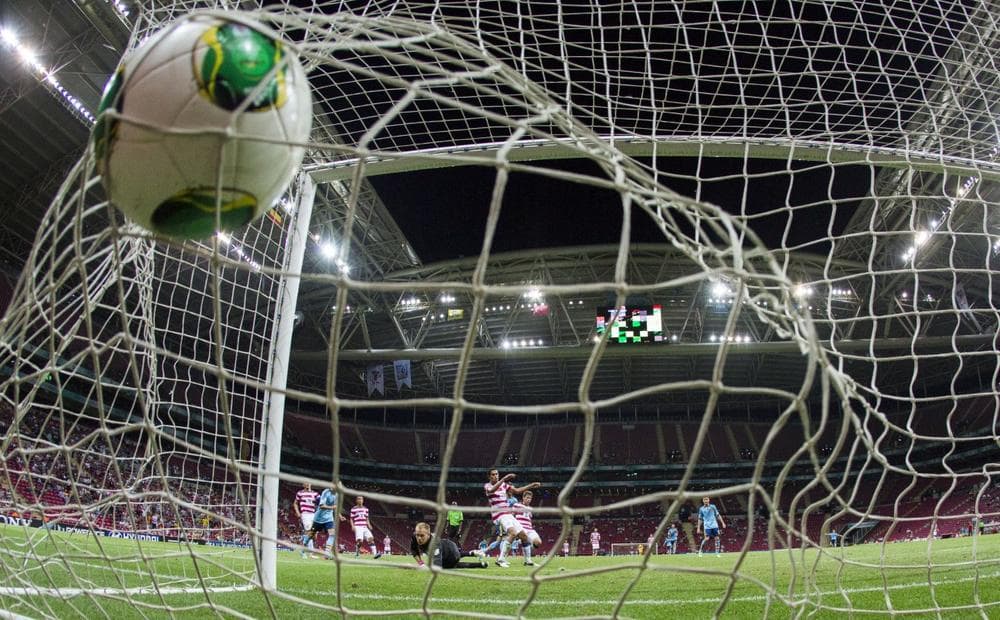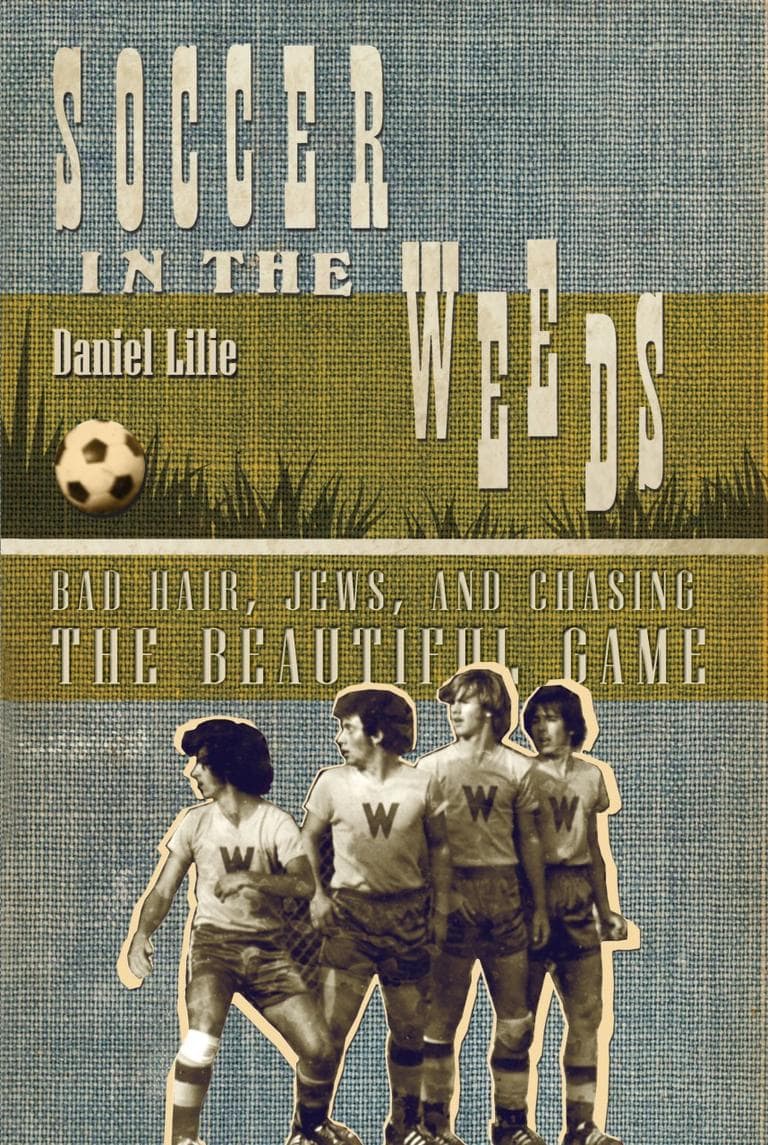Advertisement
Featured Book
'Soccer In The Weeds' Details A Love Of The Game
Resume
Soccer in the Weeds: Bad Hair, Jews, and Chasing the Beautiful Game, a new memoir by Daniel Lilie, begins with the description of a singularly ugly soccer ball. That's appropriate, because Lilie's account of a life – his – in which soccer has played a continuous part also includes lots of ugly fields and some pretty unpleasant players.
Highlights From Bill's Interview With Daniel Lilie:
BL: When you were six or seven years old, you discovered that ugly soccer ball – an old, half-deflated, moldy leather one – in the trunk of your father's VW Bug. Many children would have shied away from that ball. Why do you suppose you embraced it?
DL: It was exotic to me. It was something that other kids didn't have. And it also connected me to my father, who was an iconoclast. The ball just had a magnetic attraction for me.
BL: As a high school player in Connecticut in the early '70s, you were coached by a man whose idea of good training was running full speed into the goal post. Wait. Have I got that right?
DL: You absolutely have that right. Even as a fledging soccer player and high school student, I thought that was a rather strange coaching tactic and resulted in more a couple minor catastrophes.
BL: I can imagine. Why would anyone want to run into the goal post? Just to prove they're tough?
DL: One of the themes of the book was how much of wasteland soccer was in the 1970s. So what happened quite frequently and happened in our case was people were assigned to coach soccer it was like being assigned to create left shoes in Siberia. You would have people with skill sets from other disciplines, shall we say, and his notion was it didn't matter how skilled the kids were on his team. He was going to make us the toughest bunch out there.
BL: When you were playing intramural or informal soccer in college at Cornell, you found that "soccer offered a lot of what religion had to offer." What, for example?
DL: First of all a consistency of where you can find a group that you could attach yourself to that all sort of have a common objective, in a very generic sense. But really from a thematic standpoint and if you look at how people around the world respond to soccer there is almost a religious fervor when you get to the highest level and you get to the importance in how the fortunes of a nation swing on certain soccer games.
BL: You write that "to be a white, U.S. born kid playing soccer in a city in 1973" was to "suffer some of the most blatant reverse discrimination in the history of mankind." I wonder if persecution had anything to do with your comparing soccer to religion.
DL: Well, that's an excellent point. People don't realize that playing soccer before soccer was commonplace really engendered a lot of ill will. And I can understand in a sense soccer engenders a lot of ill will because of the theatrics involved, which are preposterous sometimes. But I think that in the '70s when I started playing there was something subversive about it. If you didn't play the three big team sports, and even by extension hockey had a little bit of that interestingly enough, soccer in particular it was a foreign thing you didn't use your hands, there was something effeminate about it, silly. There was an awful lot of defensiveness around playing soccer back in the day.
Bill's thoughts on Soccer in the Weeds
Daniel Lilie's account of his life as an enthusiastic soccer player, in  Soccer in the Weeds: Bad Hair, Jews, and Chasing the Beautiful Game, features no team you've known. Lilie is a sort of soccer everyman, skillful and adaptable enough to fit in with whatever players he finds in a public park, be that park in Brooklyn or San Diego. He's played on dirt. But he's also played on an impossibly gorgeous carpet of grass on an improbably grand estate in Greenwich, Conn., where each participant got $100 for entertaining the lord of the manner. For some of Lilie's Caribbean teammates, that day provided "a trip to a parallel soccer universe where mega wealthy folks get their rocks off."
Soccer in the Weeds: Bad Hair, Jews, and Chasing the Beautiful Game, features no team you've known. Lilie is a sort of soccer everyman, skillful and adaptable enough to fit in with whatever players he finds in a public park, be that park in Brooklyn or San Diego. He's played on dirt. But he's also played on an impossibly gorgeous carpet of grass on an improbably grand estate in Greenwich, Conn., where each participant got $100 for entertaining the lord of the manner. For some of Lilie's Caribbean teammates, that day provided "a trip to a parallel soccer universe where mega wealthy folks get their rocks off."
Lilie is prone to comparing soccer to religion and contending that "soccer and politics are inextricable." He weaves history, sociology, anthropology, and art into his accounts of soccer games played and witnessed, and he's wise enough to never take himself too seriously. The game Daniel Lilie loves is well served by this quirky account of his adventures on the pitch.
This segment aired on June 29, 2013.
